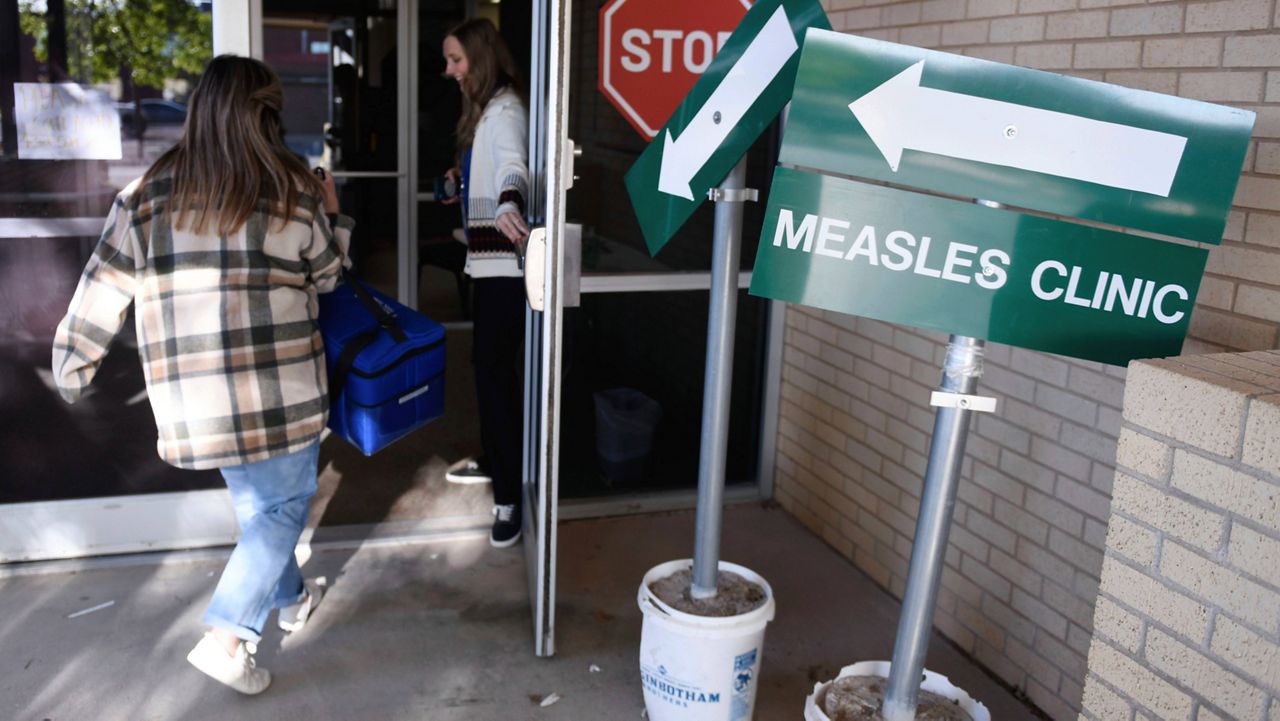CHARLOTTE, N.C. — Medical care is often not cheap, and one Charlotte woman found that out the hard way.
Gabby Coor went to an emergency room in Charlotte after a head injury
She walked away with two charges, one of which she didn’t expect
It was a general charge for using the emergency room and costs her about $2,667
A health care finance expert broke down the reason behind costs, and the hospital provided a statement explaining how it charges patients
Medical expert Dr. David Wilcox says this charge is standard based on the level of care, and it can be expected for simply walking into the emergency room.
Gabby Coor says she was in her daughter's room cleaning one day and needed to put something on the top shelve of the closet. She stepped on a stool and reached up. Then, the stool slid from under her feet, and she came crashing down. She hit her head on a the bed frame.
“This [frame] was in one piece before I cracked it with the back of my head,” Coor said as she showed the cracked bedframe.
She felt dizzy and went to the emergency room. Doctors determined she had a concussion. When she received the bill, she had one charge that said brain scan, which she expected. But another charge surprised her. It was labeled “emergency room general,” level 4.
“There was this additional charge that no one could seem to break down, and no one could seem to itemize,” Coor said. “I didn’t see what I had done to warrant almost $3,000 additional charges.”
Dr. David Wilcox says this charge is normal. He wrote a book about financially navigating the health care system. He sat down with Coor to go over the charge.
“That is like room and board charges,” Wilcox said. “It’s the nurse, the supplies you get, the care team and stuff.”
Wilcox says the general charge ranges from levels 1 through 5 based on the severity of the injury, and it is a bill to expect for walking into the emergency room. Coor was a level 4 due to her head injury.
“The most expensive way to get health care is in the emergency department,” Wilcox said.
In Coor’s case, Wilcox says she made the right decision to go to the emergency room because they can handle head trauma. But in some cases he recommends going to urgent care because it is generally cheaper.
“If you have a finger laceration or a broken bone they can do X-rays there,” Wilcox said. “Also, if you feel like you have the flu, are dehydrated, then definitely go to urgent care instead of the emergency room.”
Wilcox says sometimes patients can negotiate the charges with hospitals for financial hardships or lack of health insurance. If neither of these apply, he still encourages patients to call.
“Yeah, always negotiate health care,” Wilcox said. “You wouldn’t buy a car without negotiating the price, so always negotiate with health care too.”
Coor says she tried calling the hospital to reduce the price, but wasn’t successful. Luckily, her insurance plan covered about half the costs.
“I don’t want to discourage people from going to the emergency room, they should definitely go if needed, but I think people should know there could be charges that you weren’t expecting,” Coor said.
Coor visited the emergency room at Atrium Health University City. A spokesperson gave the following explanation for the charge:
“When a patient comes to an Atrium Health emergency department, our primary goal is to provide the often life-saving care they need. Following their treatment, charges are assessed based on several factors – including the level of care needed, tests required and the severity of the patient’s condition. There are also facility fees assessed for treatment administered in the emergency department of most hospitals, which are necessary to pay for the costs of the space, state-of-the-art technology and medical expertise in that area. In the case of Atrium Health Carolinas Medical Center, for example, it is a Level 1 trauma center – so it is required to be staffed and maintained at certain levels, 24/7, to manage mass casualty events.
The level is based on the presenting problem that led a patient to the emergency room, the level of treatment provided and the staff that took care of the patient. It also includes the room, supplies and equipment utilized during the visit. The visit level charge is not based on time spent in the emergency department, but rather the complexity of the medical care decisions made to address and rule out any life-threatening conditions as soon as possible.
We recognize health care expenses are often unplanned events for our patients, and we work diligently to ensure our costs are consistent with the level of care we provide. The criteria used by Atrium Health to determine the level of service was developed by the American College of Emergency Physicians (ACEP) many years ago. They are industry recognized and used by many other organizations nationwide.
It’s also important to note that Atrium Health has what we call a “for all” mission. We will treat anyone who needs care, regardless of their ability or inability to pay for it. We have a robust financial assistance program that offers free or discounted care to people in need.” - Atrium Health










